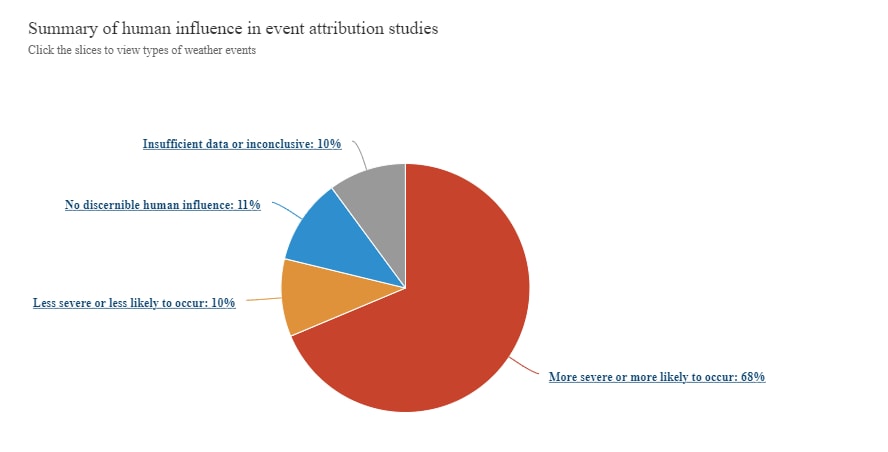Please help us improve PreventionWeb by taking this brief survey. Your input will allow us to better serve the needs of the DRR community.
Weather reports could soon be telling us about the role of climate change
By Charlotte Edmond
“It will be largely cloudy in the north-west today, with a medium risk of extreme flooding because of climate change…”
Is this the weather forecast of the future?
Forecasters may soon be adding information about the effects of climate change to their reports, thanks to a new service being rolled out by the EU’s earth observation programme, Copernicus.
It is currently looking for a company to pilot its climate change information service, Copernicus Climate Change Service – or C3S. The aim is to use information on extreme weather events and how they relate to climate change to boost public awareness, distributing it via weather agencies and the media.
The service will also be made available to a range of intergovernmental organizations and businesses concerned with the effects of climate change on society, for example in the legal, health and insurance sectors.
C3S pulls on science from the World Climate Research Programme to provide climate data and information to scientists, consultants, planners and policy-makers.
Climate change in real time
Directly linking human activity and extreme weather is a tricky and evolving science. But by tying the two, scientists hope climate change will become less abstract and the public more aware of their role in influencing floods, droughts, and heatwaves.

Recent analysis by climate science website Carbon Brief of research in this area concluded that over two-thirds of extreme weather events were made more likely or more severe because of humans.
The World Weather Attribution initiative, a partnership between the Environmental Climate Change Institute at the University of Oxford, the Royal Netherlands Meteorological Institute and the Red Cross Red Crescent Climate Centre, aims to look at the effects of climate change on weather around the world as it happens.
Its recent analysis of the current extreme heatwaves in France, for example, shows that the probability and severity of high temperatures have increased by at least fivefold because of climate change. The country’s all-time temperature record was broken at the end of June, with the thermometers hitting 45.9°C.
Explore further
Please note: Content is displayed as last posted by a PreventionWeb community member or editor. The views expressed therein are not necessarily those of UNDRR, PreventionWeb, or its sponsors. See our terms of use
Is this page useful?
Yes No Report an issue on this pageThank you. If you have 2 minutes, we would benefit from additional feedback (link opens in a new window).